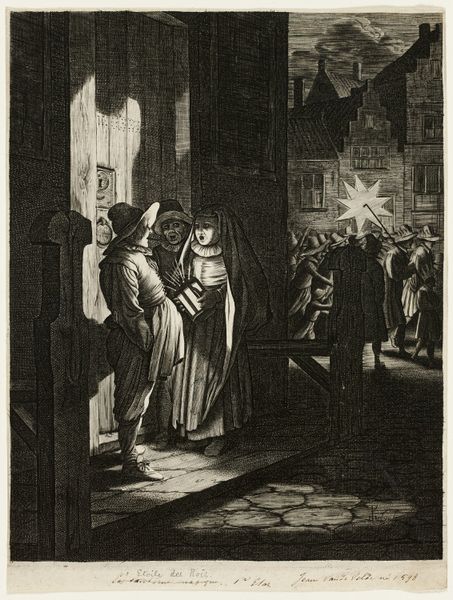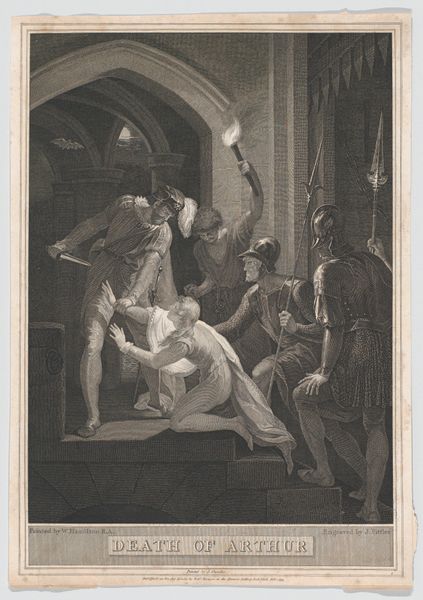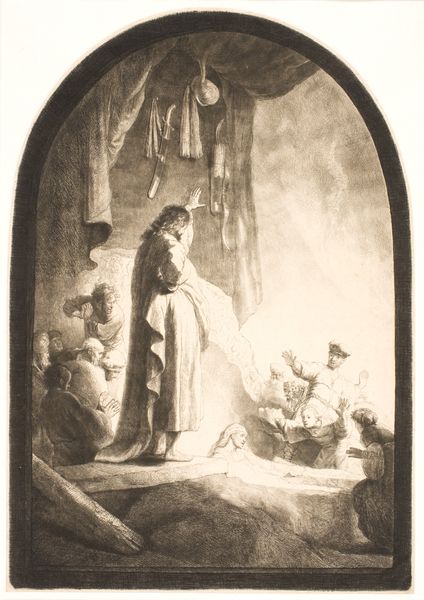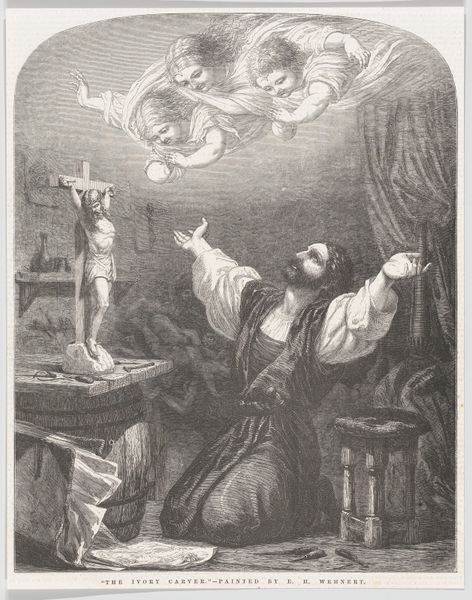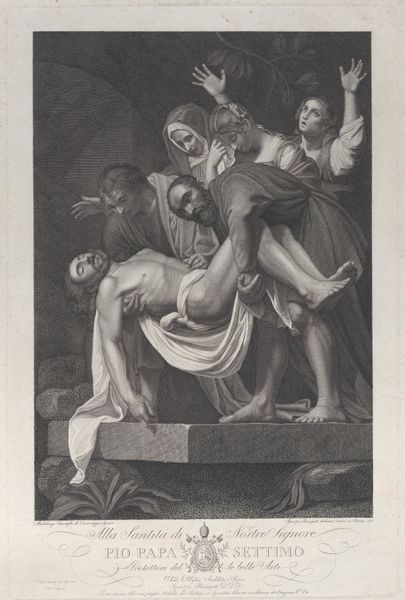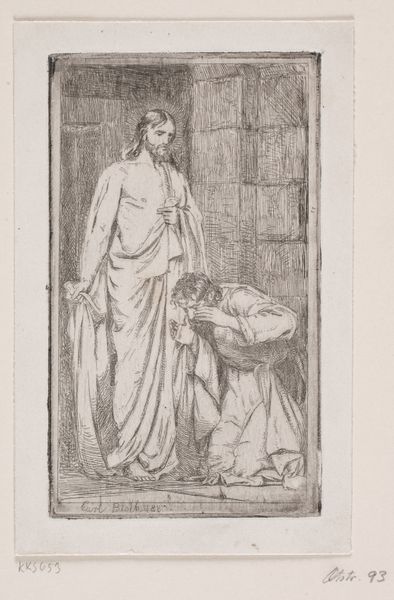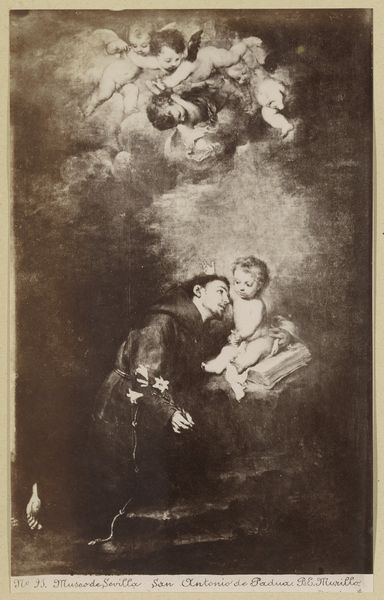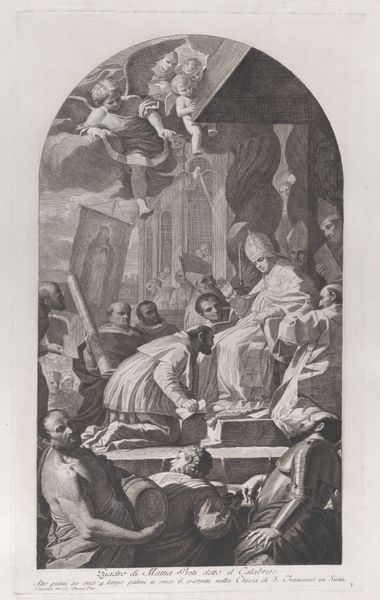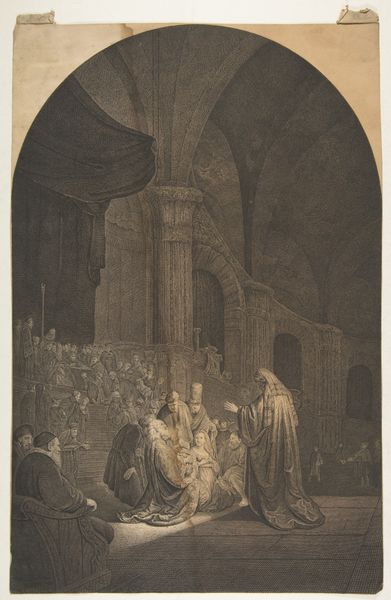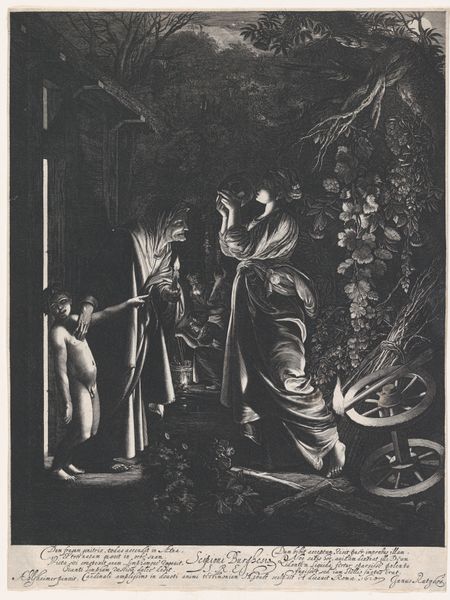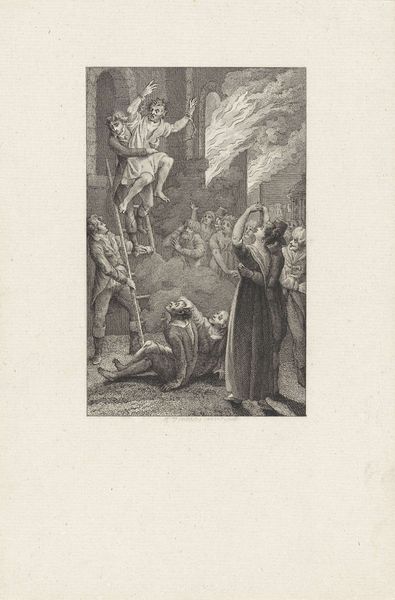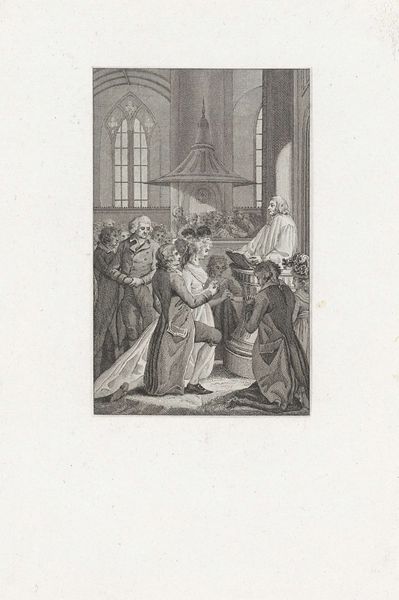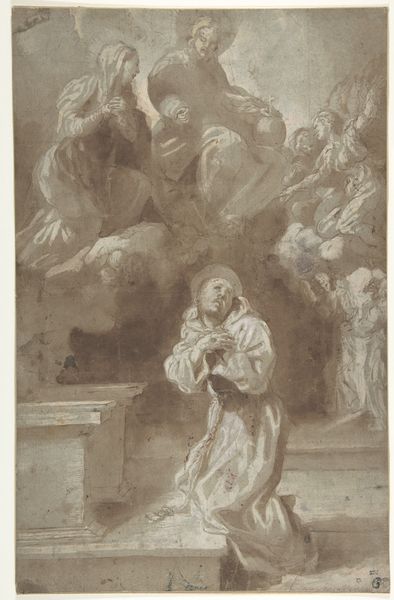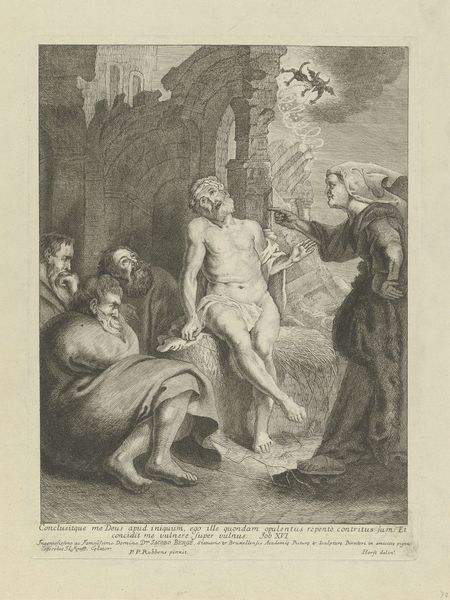
print, engraving
#
narrative-art
# print
#
figuration
#
romanticism
#
19th century
#
history-painting
#
engraving
Dimensions: height 126 mm, width 92 mm
Copyright: Rijks Museum: Open Domain
This print, Vernieling van een altaarstuk, was made by Johann Wilhelm Kaiser in the 19th century using engraving. An engraving is made by carefully cutting lines into a metal plate, inking the surface, and then pressing paper against it. This process demands precision and control, a true mastery of craft. Look closely, and you'll see that Kaiser wasn't just documenting an event. The sharp, deliberate lines create a sense of chaos and violence, reflecting the act of destruction itself. You can almost feel the force of the hammer against the altar. The tools of image reproduction -- the engraver's burin and the printing press – made it possible to disseminate the powerful message widely and contribute to political discourse. By focusing on the tools and techniques involved, we can appreciate how the medium of engraving itself contributes to the artwork's meaning, allowing Kaiser to create a lasting statement about social change.
Comments
No comments
Be the first to comment and join the conversation on the ultimate creative platform.
